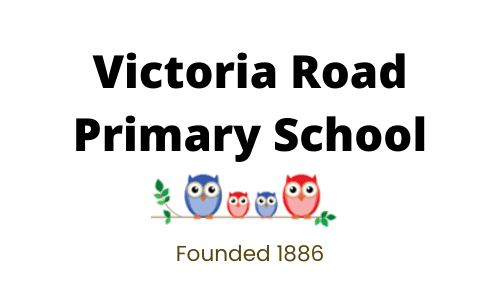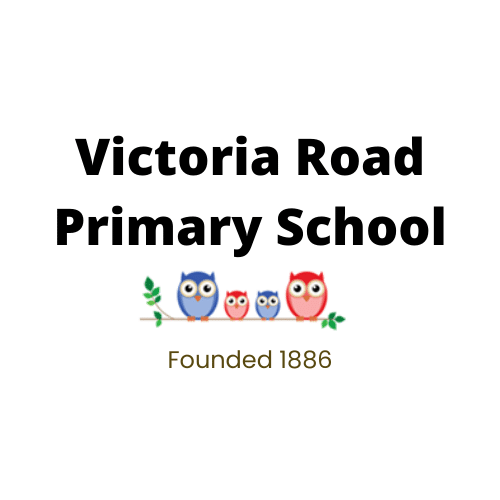Curriculum Rationale
Our Curriculum Rationale
In this section, you will find information about our school’s curriculum, including:
The content of the curriculum we follow in each academic year for every subject. Subject Leaders have provided information regarding each individual subject
The names of the phonics and reading schemes we are using in KS1 (Please refer to the Phonics & Reading Tab.
If you require any further information regarding our curriculum, please contact the school office in the contact section.
At Victoria Road Primary School, we value a knowledge-rich curriculum underpinned within a carefully planned and sequenced framework to enable cumulative knowledge and effective learning. The curriculum is rooted in a strong belief of equality for all pupils therefore the approach is successfully designed to be ambitious – ensuring that pupils with SEND and those who are disadvantaged apply what they know and can do with increasing fluency and therefore gain confidence in learning and thereby transcend any barriers to successful learning.
Our curriculum ensures excellent coverage of the National Curriculum (Years 1-6) and Foundation Stage Early Years Curriculum (Reception Children). We have fully embraced the higher expectations set out in both curricula areas so that we can ensure a sound progression of learning. We also have a core team of subject leaders who are passionate about their curriculum area. Our curriculum is broad and balanced and offers a wide range of curricular activities involving visits out of school and visitors to school to enhance learning and extend pupils’ cultural capital.
Curriculum Intent
At Victoria Road Primary School, our curriculum is focused upon ensuring that all pupils are supported and challenged to gain the knowledge, skills and attributes required to ensure that they are ready for their next stage of education. Ultimately, we recognise that we are preparing our pupils for lifelong learning and to make effective contributions to the diverse society in which we live.
Our curriculum encompasses not only the formal requirements of the National Curriculum but goes beyond the experiences of the classroom to ensure that our children are exposed to the richest and most varied opportunities that we can provide. Research always underpins the curriculum planning stage to ensure that this informs curriculum provision. Acknowledgement of short and long-term memory capacity as well as cognition overload features strongly in the planning and provision stages of our curriculum.
At Victoria Road Primary School we are: skilled readers, confident writers, mathematicians, scientists, historians, geographers, musicians, artists, linguists, theologists, athletes, designers and technologists, inclusive and diverse. We want our children to have no limits to what their ambitions are and want them to embody our core values.
The purpose of our curriculum is to:
- Produce successful learners who can communicate effectively
- Develop confident learners who are resilient to failure
- Promote responsible and effective contributors to society
- Encourage principled, reflective empathetic individuals
In developing our school curriculum, we acknowledged our school context and cultural demographic; this has framed the choices of the curriculum content we have made particularly in aspects of the curriculum such as geography and history.
With the socio-economic climate of our school in mind, we strive to ensure our children see the importance of building resilience and develop into self-motivated, life-long learners with the ambition to be whatever they dream to be. However, we also acknowledge the increasing number of pupils who are disadvantaged in terms of life experiences and we enrich their time in our school with unforgettable experiences and provide opportunities which are normally out of reach. We firmly believe that it is not just about what happens in the classroom, it is about the added value and cultural capital we offer to really inspire our children.
We plan with the end points of learning at the forefront of curriculum design. Every subject has clearly defined end points of learning for key stages, year groups and individual lessons. This enables clarity of assessment for learning and determines a framework for leaders to measure curriculum performance.
Reading is a key priority within the school curriculum. There is an acknowledgement that in order to access any area of the curriculum successfully and independently reading has to be a well-developed area of learning for the pupil. We seek to develop fluency, vocabulary and a love of reading within this school.
Curriculum Implementation
At Victoria Road Primary School we provide a unique curriculum based on five sound principles of learning:
The National Curriculum (content) knowledge and skills be gained at each stage
Rosenshine’s Principles (pedagogy)
Process Learning (approach)
Stages of Learning (depth of learning)
End Points of Learning (assessment for learning)
The application of these principles ensures the consistency of the teaching and learning experiences for all our pupils across all key stages.
Curriculum provision ensures that learning is embedded within the pupils’ long-term memory and this is achieved through regular reviews of learning in all subject areas. In line with our Teaching and Learning Policy, all staff ensure new material is presented in small steps, checked for understanding to identify any misconceptions and to ensure children’s learning is secure before moving on.
We have carefully designed our knowledge-engaged curriculum to enable learners to acquire relevant subject knowledge which underpins the application of skills. Knowledge is consolidated and built upon to support retention and recall and is clearly outlined on knowledge organisers. Skills are carefully and progressively mapped across each year group and subject area. This ensures that by the time children leave our school they have learned, and are able to recall and apply the key information that we feel is important in order for them to be successful in the future.
Knowledge is taught through an enquiry driver. Teaching provides the children with the knowledge and skills to provide or demonstrate a response to this enquiry driver and we call this the end point. Planning takes on the form of units and these are delivered over a half term. Planning is led by the enquiry driver, which staff use to plan a series of lessons that aim to answer the enquiry driver question. Learning is always based on building on prior knowledge whilst working towards clearly defined end points. Subject leaders are integral to the planning process and understand the pathway that their subjects take. Progression of knowledge and skills are carefully mapped across year groups. Subject leaders provide any additional support required in relation to their subject specialism.
At Victoria Road Primary School we are committed to giving children the best possible start to their early education and we believe Cultural Capital is the essential knowledge that children need to prepare them for their future success. We see Cultural Capital as the accumulation of knowledge, attitudes, habits, language and possessions that enables our children to demonstrate their cultural competence and social status. School plays a crucial role in developing this through immersing children in dance and music, visiting theatres, galleries and historic sites and by introducing them to literature and art.
Embedding Cultural Capital into our curriculum is a way of closing the gap between children from differing socio-economic backgrounds by ensuring that children from all backgrounds have the same opportunities in society to achieve their full potential.
Curriculum Impact
We know when our curriculum provision has been successful because this will lead to excellent outcomes for all of our pupils including disadvantaged pupils and those with SEND. This will equally assure that pupils are ready for their next stage of learning.
Summative assessments are made for all pupils three times a year, although ongoing formative assessment supports learners throughout their teaching and learning cycle. End points are instrumental in knowing whether pupils have been successful. We aim for our pupils to recall learning with fluidity and automaticity when this is required such as multiplication tables and phonics.
We use both formative and summative assessment information every day, in every lesson. Staff use this information to inform their short-term planning and short-term interventions – including in the foundation subjects. This helps us provide the best possible support for all of our pupils, including the more able. Subject leaders have mapped out the assessment milestones for each phase and further broken these objectives down for each year group in each subject area.
Assessment information is analysed by Subject Leads, the Assessment Lead and Headteacher as part of our monitoring cycle. Pupil progress reviews are conducted half termly (formative) and termly (summative). This process provides the SLT and Governors with an accurate and comprehensive understanding of the quality of education in our school.
We set out our monitoring cycle at the beginning of each academic year. This identifies when monitoring for all year groups is undertaken in all subject areas. Monitoring includes: book scrutiny, lesson observations and/or learning walks, pupil/parent and/or staff voice.
All of this information is gathered and reviewed. It is used to inform further curriculum developments and provision is adapted accordingly.


